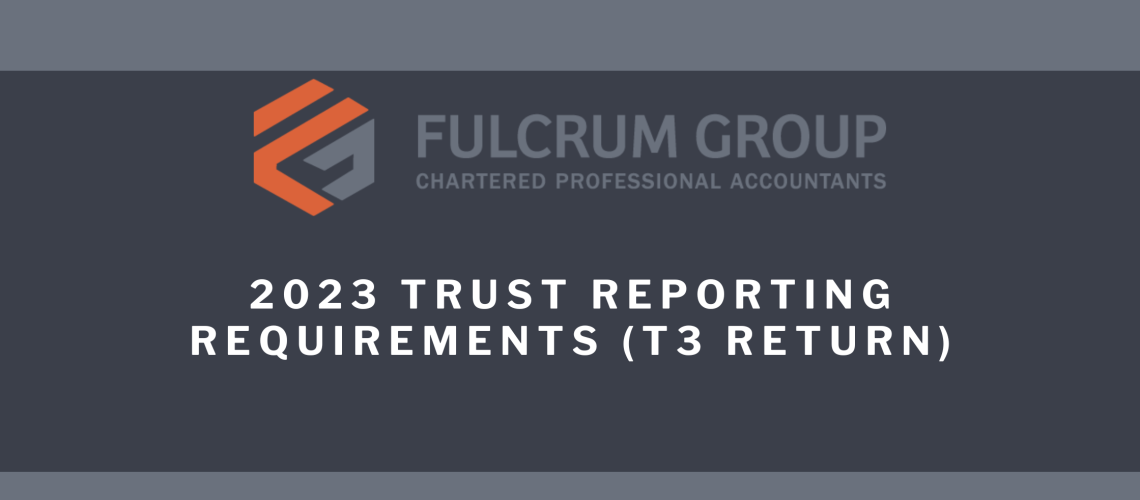The federal government recently released new federal trust reporting requirements that will be effective for taxation years ending after December 30, 2023 (which means that taxation years ending December 31, 2023, will be affected). These changes will have an impact on many trusts, including those previously exempt from reporting obligations.
Expanded Reporting for Trusts
The new rules significantly broaden the scope of trusts required to file an annual Trust Income Tax and Information Return (“T3”). This includes most personal trusts resident in Canada, even those without income tax liability or distributions during the year. Notably, bare trusts, often used in joint ventures, real estate holdings, or probate planning, may now also be subject to these new reporting requirements.
What Could Constitute a Trust?
- Co-Signing or Being on a Property Title: If you have co-signed a loan or are on a property title to help someone (like a child) acquire a property, with the understanding that the benefit, profits, or control are theirs.
- Estate Planning: Holding, controlling, or being named on assets that are intended to be passed on or utilized by others in the future.
- Asset Management: Managing assets, be it money, bank accounts, property, or investments, with clear instructions (usually in writing) about who benefits or how the assets should be managed or distributed (this can include bank accounts held in more than one person’s name with a balance of $50,000 or more).
Trusts created for holding personal-use assets for estate planning or asset protection, such as those above, which may have previously qualified for the filing exception, will no longer be exempt under the new rules.
New Obligations and Requirements
Expanded T3 Return Filing Obligations
- Previously, certain trusts, especially those with no activity or income tax payable (like those holding a vacation property), were exempt from filing a T3. This exemption will no longer apply to most of these trusts starting in 2023.
For supporting information from Canada Revenue Agency, click the link below |

